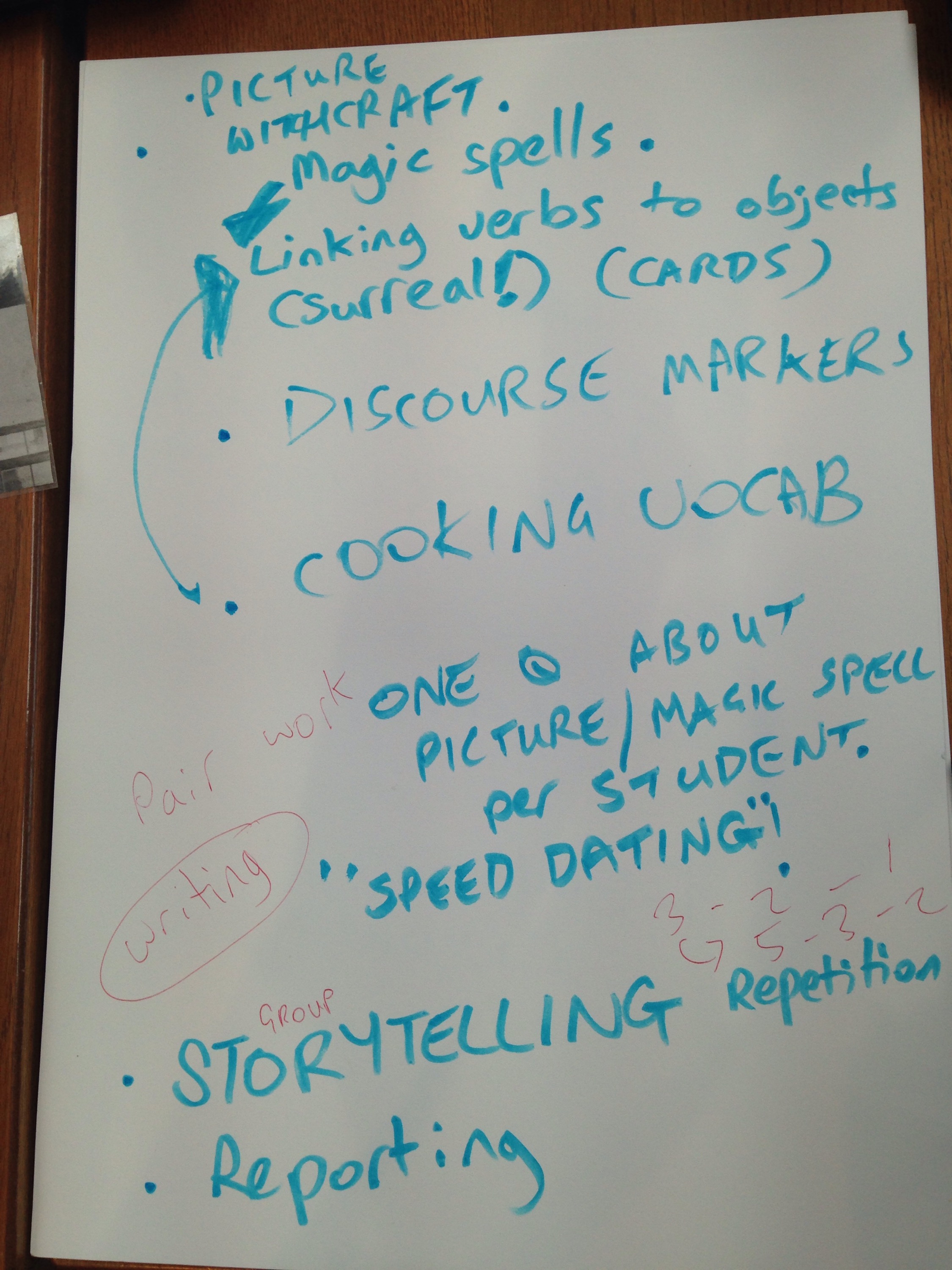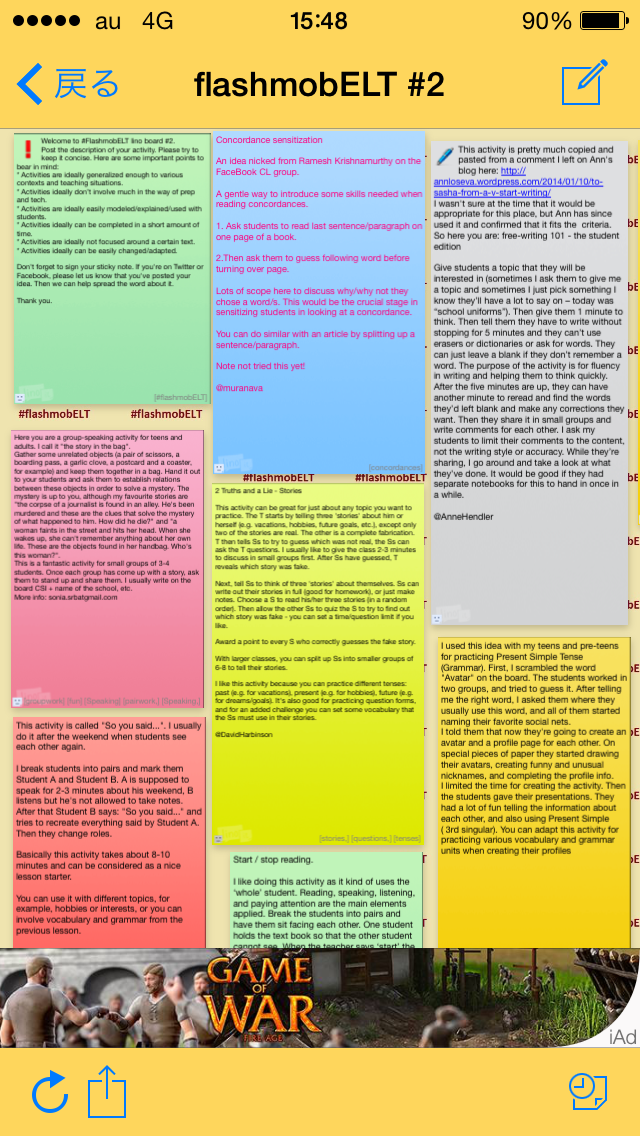Since I began teaching freelance and for agencies about five years ago I haven’t had the benefit of an office in the same building I work in except for two of the regular gigs I have. With this in mind, here are my essentials.
- Cheap Pens
You will lend pens out and forget to take them back in at the end of the lesson. The cost mounts up,
- Earphones
With these you can prep listening exercises on public transport or find supplementary/alternative materials.
- Authentic materials/Realia
Menus, transport maps, leaflets, etc. can be exploited in lessons.
- USB Drive
Not all convenience store printers will print directly from smartphones/tablets. Carry your materials on one of these. Periodically copy stuff back and forth. Cloud storage is a handy backup, too.
- Plastic folders
Can keep documents inside without massive creases. May also work as a desk when on the train.
- Scissors/Swiss Army Knife
For cutting paper into strips or bits.
- Envelopes
For keeping tiny bits of paper inside.
- Dice
Useful for ad-hoc games or random selection of student/task type/anything else that has six options.
- Notebook
Monitor stuff students say. It can and will be a goldmine. You can use it for examples of common errors, more authentic gap fills and even just for reflection on task performance.
- Post-its/Index cards
These work as bookmarks, vocabulary cards, cue cards and more.
Also, it’s useful to have a big bag to keep them in!


